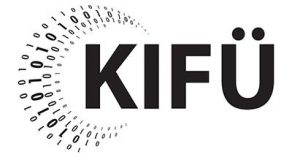Euro CC
GN4-3
Participation in the GÉANT consortium (since 2000) and in the GN4-3 project (2019-2022) enables joining international research and development activities. It is also a contribution to international development, the enrichment of domestic knowledge and experience, and the acquisition of information.
The topics of the KIFÜ GN4-3 (N) project cover network development (WhiteBox router, quantum communication) and network services (Spectrum as a Service), supervision, WebRTC (web real-time communication), federal identification and authorization management (eduGAIN development, eduTEAMS and T&I development), the development and application of the NRENum.net (research-education number mapping) service, the provision of GDS-based international video conferencing and the European integration of cloud-based services (GEANT Cloud).
NI4OS - Europe
rurAllure - Promoting rural museums and heritage sites near European pilgrimage routes
The leaders of the consortium running the project are Martín López Nores, from Universidade de Vigo. The consortium involves 16 institutions, including Spanish, Norwegian, Italian, Portuguese, Slovak research institutes and universities. Hungary is represented by the Government Informatics Development Agency (KIFÜ) and the Mária Út Egyesület ( MUTKE ).
The first part of the project will involve the creation of a technology platform and the test development of four road sections. During the elaboration of the experimental parts (pilots, KIFÜ, MUTKE, the Slovak Technical University ( Slovenská technical University in Bratislava ) and the Comenius University in Bratislava Komenského v Bratislave ) will promote natural heritage in the area.In the technological working group of the project, KIFÜ takes part in the development of software suitable for covering the entire European pilgrimage network, and provides the infrastructural conditions necessary for the operation of the software.
In addition to spiritual values, pilgrimages have undoubtedly become a major economic resource in Europe today. Hundreds of thousands travel the routes every year, but the beneficial economic impact is almost exclusively felt in the settlements right along the routes. Predominantly rural provinces and regions facing significant economic and demographic challenges across Europe are passive witnesses to the flow of pilgrims – while they could enrich the experiences of pilgrims with much content and value.
Pilgrimages are often planned with some flexibility in terms of dates, distances covered in successive stages, and resting places. Pilgrims are also open to unexpected sights. The project aims to generalize the involvement of museums and heritage sites in pilgrimage tourism by designing, implementing and testing technological tools and promotional strategies. RurAllure thus contributes to stimulating economic activity, strengthening more diversified employment, preserving endangered cultural heritage and combating rural depopulation.
D-ILA - DIGITAL INDIVIDUAL LEARNING ACCOUNTS IN THE VISEGRAD COUNTRIES
Knowledge sharing is a key project objective, allowing the target group to directly test the validated data model in practice and further develop it as needed. The project does not deal with AI development; we will use a ready AI solution and will not develop software, we will publish code in an open repository
The partners are going to test the ILA data model, providing a simulation for governmental institutions as well as other possible users (employers): running AI after setting different parameters (money to be invested, target group to be supported etc.) it will be easier to plan how much money in what share stakeholders should invest in adult training. In other words, we are going to test the data model, by enriching it with instance data and further, explore if it allows for specific use cases. This way we will be able to indicate which types of data are necessary for making inferences of a specific sort (such as training recommendations to individuals, targeted spending of training funds, supporting skills policies etc.).
